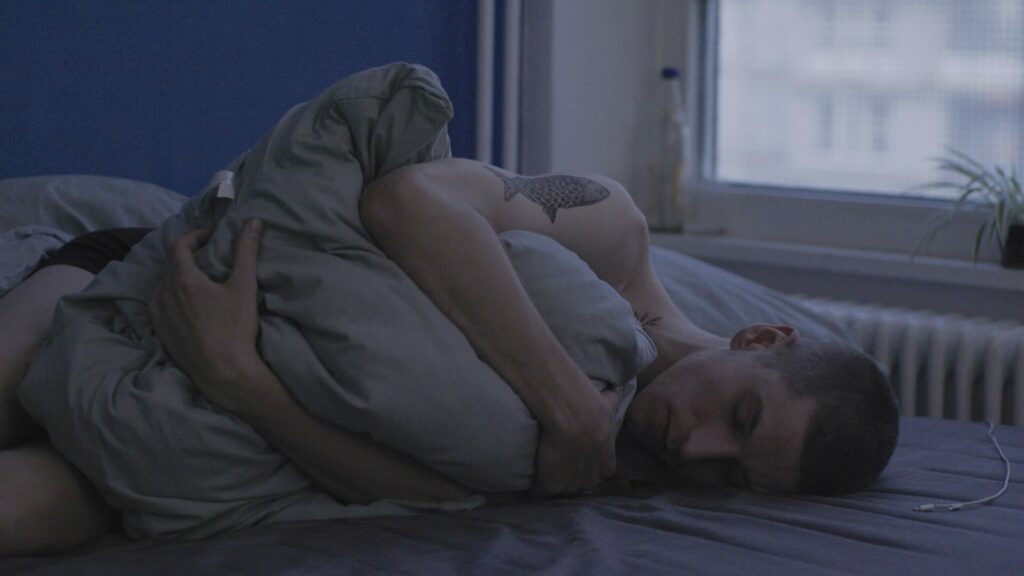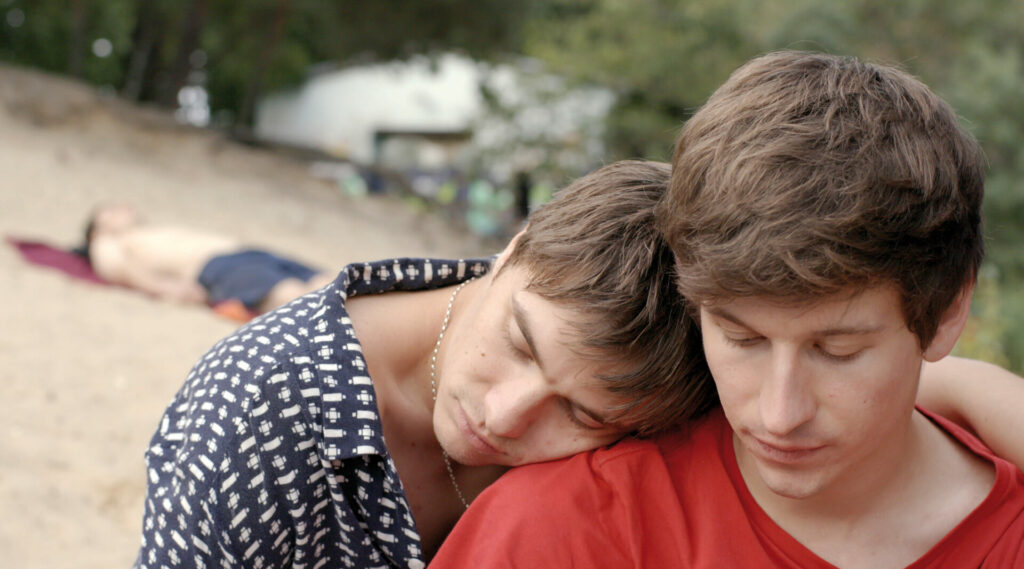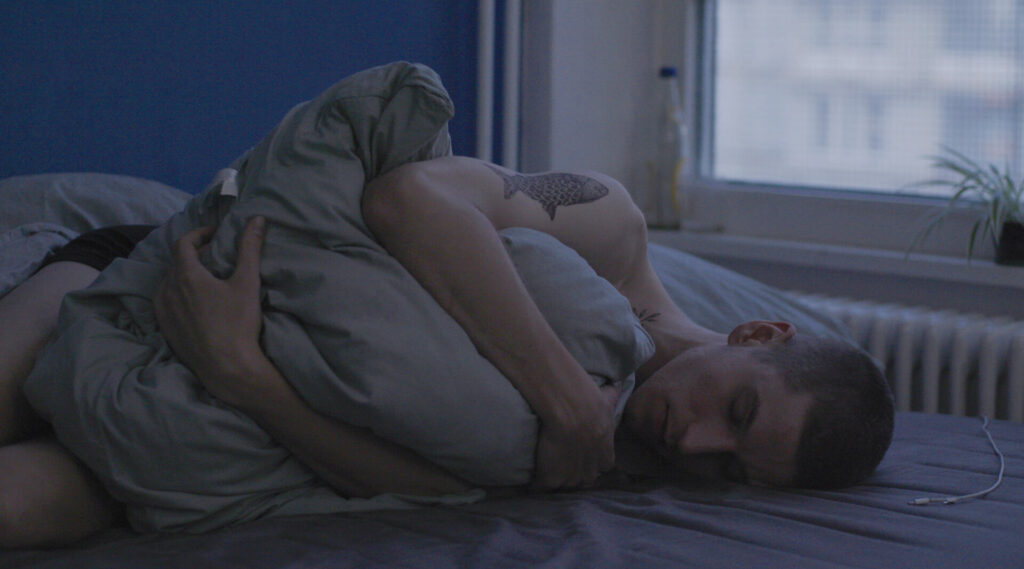Drifter review: a lethargic portrait of Berlin’s queer scene
Hannes Hirsch’s Drifter is a slow slice-of-life drama that stumbles through Berlin’s queer scene.

The life of a drifter is naturally fluid and in flux. In the context of that instability is where we meet 22-year-old Moritz (Lorenz Hochhuth), a fresh face in Berlin who’s ready to rediscover himself in the city.
Hannes Hirsch’s Drifter follows a second coming of age of sorts; while the drama invests wholeheartedly in its protagonist Moritz, Drifter glosses over queer nuance and is hesitant to delve into the underground scene.
Before any emotional grounding for Moritz is established, he and his uncommitted boyfriend Jonas (Gustav Schmidt) are at each other’s throats. When Jonas suggests they spend a night apart, concern morphs into speculation. As techno music pumps as strong as the anger in his blood, Moritz storms off and Hirsch’s unstable, hand-held camera follows. Instead of wallowing in the breakup, Moritz throws himself head first into Berlin’s queer scene and Jonas’ irresistible puppy dog eyes soon become an addiction of the past.

With a new bunch of queer friends as extravagant as they are fabulous, Moritz ventures into BDSM and kink and Drifter becomes about a gradual transformation. However, just like the hazy Berlin nights that blend together, the film feels untethered and just out of focus.
Surrounded by sniffing in the backseat of a car and being invited to threesomes, Moritz finds himself in new beds with different linens and unfamiliar pillows. For a brief period, he finds security with 36-year-old projectionist Noah (Cino Djavid) who offers him some homely comforts. Yet, Moritz is always lingering on the sidelines, in the corner of the room during family time, and the more reluctant one during sexual escapades.

In response to Moritz’s passiveness, Drifter is indecisive. Following a character that’s in a period of self-discovery, there’s a distance that is never closed between Moritz and Hirsch’s lens. While it shoots for observational, this only further exacerbates unhurried pacing. The film does establish a haptic language with touch being essential in Moritz’s journey of self-acceptance but there’s a reluctance to draw closer in physicality and psyche. Notions of body image and passion orbit the film’s slow-moving pace; with every new sunrise comes a chance to explore this tangled knot of masculinity and queerness but it’s only in Drifter’s final act that really comes to fruition.
Committing to gritty realism, delving into the dark corners of Berlin’s nightlife, Hochhuth’s quiet performance does lure out the film’s most intriguing facets with his hesitant expression and shy gaze. While leisurely passing ketamine around the group as they bask on the beach or later stand to admire the fireflies that float through the woods, Drifter plays as a snapshot that is tenuous to experience. Moritz’s story, despite its potential as a city-rooted odyssey, feels hindered by detachment where connection and desire is fleeting.
2/5
Tickets for BFI Flare are on sale now.
